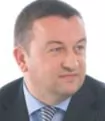As the European institutions continue to focus on implementation of asset management and investment funds rules, the Matheson Asset Management Team would like to update you on some recent developments.
AIFMD
The European Securities and Markets Authority (ESMA) is required to issue advice to the European Commission (Commission) as to whether or not the AIFMD EU passport system should be extended to the management and / or marketing of AIFs by non-EU AIFMs and to the marketing of non-EU AIFs by EU AIFMs. It is required to do this by 22 July 2015, and to give its opinion to the European Parliament, the Council and the Commission on how the marketing and management passport for EU AIFMs and the national private placement regimes (NPPRs) have been functioning since 22 July 2013.
For ESMA to issue positive advice on extending the passport system to the Commission, which is not certain at this stage, ESMA must be convinced that no significant obstacles regarding investor protection, market disruption, competition and the monitoring of systemic risk impede the extension of the AIFMD passport system. In the lead up to preparing its advice and opinion for the Commission, ESMA has now launched a Call for Evidence, in order to gather information and views on these issues from key stakeholders.
EU and non-EU fund managers and advisors, investors and non-EU securities supervisors are also asked to submit their experiences to date of how the AIFMD passport system has been operating on the ground, and on the application of the various NPPRs currently operating throughout the EU.
It is worth noting that ESMA's ultimate advice to the Commission regarding the possible extension of the passport will not treat all non-EU countries as a single block – instead, its decision whether or not to grant will proceed on a country by country analysis. Potentially, this could mean that AIFMs or AIFs currently excluded from the AIFMD passport system need to prepare for country by country exclusions for funds and managers to continue beyond 2015. Contingency planning would therefore be prudent in the event that ESMA issues negative advice on the extension of the passport, whether completely or in relation to specific third countries, or in the event that the extension does not occur for other reasons.
In his keynote speech delivered this afternoon at the Irish Funds Industry Association Symposium in London, Mr Gareth Murphy, Director of Markets Supervision at the Central Bank of Ireland, noted the significant political input which would be involved with respect to dialogue on AIFMD passport
extension - and the issues which would engage transatlantic negotiations alongside ESMA's consideration of technical matters.
The deadline for responses to the ESMA Call for Evidence on AIFMD is 8 January 2015. A link to the document is here. The partners at Matheson intend to make a submission and we welcome hearing your views.
UCITS V
Today, ESMA published its technical advice to the Commission on two implementing measures which are required by the UCITS V Directive. This advice follows a period of public consultation run by ESMA which closed in October, with 60 responses received.
ESMA's advice relates to the areas of (i) the insolvency protection of UCITS assets when safekeeping is delegated (with relevance for the custody delegate and the depositary) and (ii) the independence requirement for depositaries.
Regarding insolvency protection of UCITS assets, ESMA's advice sets out a non-exhaustive list of measures to be put in place and performed on an on-going basis by the third party delegate. It also specifies measures that the depositary should put in place to ensure that the third party fulfils its obligations. In particular, ESMA has retained proposals to include the acquisition of independent legal advice regarding segregation of the UCITS' assets and local insolvency rules where a depositary delegates to a third party located outside the EU.
With respect to depositary independence, today's advice usefully clarifies that a management company (or self-managed investment company) is not prohibited from appointing a group company as depositary. Thus ESMA in its final report to the Commission recognises the significant restructuring and other costs which would have resulted from any such proposal.
Member States must adopt and publish the laws and regulations necessary to comply with UCITS V by 18 March 2016. With respect to next steps on the implementing measures referred to above, the Commission has a practice of adopting delegated acts in advance of the end of the directive transposition period, in order to allow Member States sufficient implementation time. It should be noted that technical advice received from ESMA does not prejudge the outcome of the Commission's final decision. A link to ESMA's Final Report on UCITS V technical advice is here.
With respect to Level 3 guidelines on UCITS V remuneration being published by ESMA, Matheson understands that these may be anticipated in or around Autumn 2015.
European Political Changes
With its first official meeting taking place in Brussels on 5 November 2014, the new College of EU Commissioners under President Juncker is now in the fourth week of its official mandate, which will continue until 31 October 2019. The Commission President has expressed a wish for the College to take European concerns seriously - without resorting to populist or ideological rhetoric. The previous portfolios falling with the Directorate General for Internal Market and Services (DG MARKT), which included financial services, have been restructured, and DG MARKT has been re-named the Directorate General for Financial Stability, Financial Services and Capital Markets Union with effect from 1 January 2015. The former Commissioner with responsibility for financial services, Michel Barnier, has been replaced by the UK's Lord Jonathan Hill who will lead the newly titled directorate. Some commentators believe that these changes will have some impact on the pace and tone of EU
financial services legislative developments, however it is as yet too early to say if there will be material change in the area.
Timeline for the ICAV
Turning to upcoming Irish developments, industry is ready for the Irish Collective Asset-management Vehicle (ICAV) legislation to be enacted by Government in January 2015. The Central Bank of Ireland has indicated that it will be in a position to accept applications for ICAV authorisations within two weeks of ministerial enactment of the new legislation.
Active ETFs and Irish Stock Exchange Listing
The Irish Stock Exchange (ISE) has removed the requirement for daily disclosure of portfolio details for actively managed exchange traded funds (ETFs). This change came into effect on 18 November 2014. The ISE is used as primary listing venue for many ETF issuers, and this development is regarded as a positive step in encouraging more issuers to choose Ireland as their preferred market of choice for an ETF listing. Matheson made a significant contribution to this rule change, providing insight on market practice and feedback from our clients, through various discussions and written submissions to the ISE.
The content of this article is intended to provide a general guide to the subject matter. Specialist advice should be sought about your specific circumstances.








